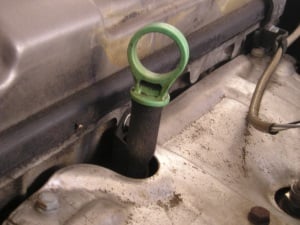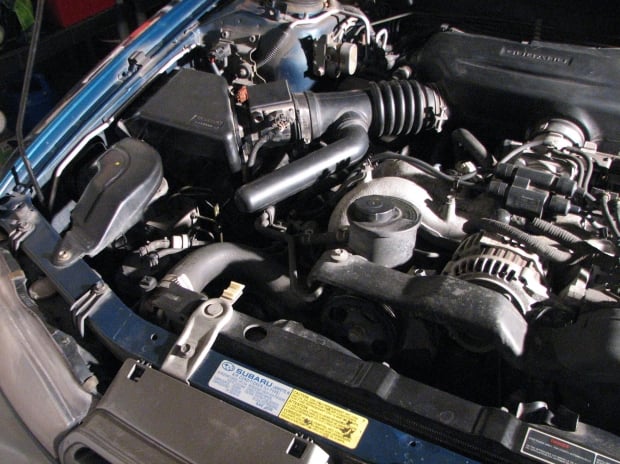Engine Oil Consumption - James on Engines #1
Through the Contact Us forms on the Bell website, we get all kinds of inquiries about fuel problems and engines from the general public. Some of them...

It’s a simple question, really. Does motor oil have a shelf life?
 Asking that question may not actually be what we really need to know. Instead, we might be wanting to know something along the lines of if I buy some quarts of oil at the store, how long do I have before I need to use them? Or, even if we don’t realize it, what we really may be asking is how long does oil last in my engine before I need to change it?
Asking that question may not actually be what we really need to know. Instead, we might be wanting to know something along the lines of if I buy some quarts of oil at the store, how long do I have before I need to use them? Or, even if we don’t realize it, what we really may be asking is how long does oil last in my engine before I need to change it?
These are different questions that require us to consider different things.
Simply put, the shelf life of conventional motor or "lube" oil is up to five years. It’s not something that goes bad in a couple of months. It’s impossible to predict exactly how long motor oil shelf life is because petroleum stability (how well it resists change in its properties) is situation-dependent. It depends how much exposure it receives to things that can speed up its degradation.
Petroleum products “go bad” because of chemical reactions that get started upon exposure to things like air and oxygen, heat, light and water. As such, how you store the oil influences its shelf life. But even with these considerations, we’re talking about the difference between a quart of oil lasting for two years in your garage vs. five years. Just keep it away from long-term exposure to extreme heat, and keep it sealed up so it isn’t constantly exposed to air or have the chance to develop condensation. Your oil will last longer on the shelf than you think it will.
If you have motor oil that you have no idea how old it is, just have a visual look at it. Pour it out of the container so you can examine it. Fresh motor oil has a pale brown color to it. If the oil is significantly darkened, it may have oxidized. If it has a milky appearance, there could be water in it. It should not be hazy, nor should you be able to detect any kind of settling, or the presence of any particulates.
Absent these things, your motor oil is probably fine to use.
The other question concerns how long your oil is good for in your engine - how long it "lasts" in your car. This is a much different question, by nature, than the first one. But like the first one, this is situation-dependent - except the modifier here is driving conditions instead of storage conditions. Driving conditions are the biggest determiner of how long oil lasts in your engine. This is because the length of time an oil "lasts" in your car is really linked to how quickly the additives in the oil are depleted. Motor in its simplest form is "base oil + additives". The base oil "lasts" forever (not really but you get the point); it's the additives - the acid neutralizers, dispersants, detergents - that get used up and you drive and they do their job in the engine environment.
Once these additives are depleted, the oil can't protect your engine like it should, which means it's time to change your oil.
Saying all of this doesn’t mean you need to change your oil after 3000 miles on the clock. The best answer to this question is found in your vehicle’s owner’s manual. The most common answer to the oil change interval question is 7,000 miles, and it goes down to 5,000 miles if you fall under the “severe driving conditions” category – lots of short trips, predominantly very hot or very cold driving conditions, lots of very dusty driving conditions. Your vehicle owner’s manual will give you the right answer to this question.

Through the Contact Us forms on the Bell website, we get all kinds of inquiries about fuel problems and engines from the general public. Some of them...

Through the Contact Us forms on the Bell website, we get all kinds of inquiries about fuel problems and engines from the general public. Some of them...

Most oil advertising, when you get past the claims about how they are much better than the competition, make claims about engines being prone to the...